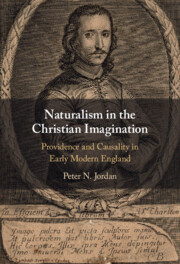
- Cited by 4
-
Cited byCrossref Citations
This Book has been cited by the following publications. This list is generated based on data provided by Crossref.
Reeves, Josh A. 2023. A DEFENSE OF SCIENCE AND RELIGION: REFLECTIONS ON PETER HARRISON'S “AFTER SCIENCE AND RELIGION” PROJECT. Zygon®, Vol. 58, Issue. 1, p. 79.
Harrison, Peter 2023. NATURALISM AND THE CATEGORIES “SCIENCE” AND “RELIGION”: A RESPONSE TO JOSH REEVES. Zygon®, Vol. 58, Issue. 1, p. 98.
Choi, Jin-Woo 2024. Remembrance of Auroras Past: The Enlightenment Search for Northern Lights in Historical Sources. Isis, Vol. 115, Issue. 2, p. 215.
Brooke, John Hedley 2024. On the Experience of Being Replicated. Zygon: Journal of Religion and Science, Vol. 59, Issue. 2,
- Publisher:
- Cambridge University Press
- Online publication date:
- June 2022
- Print publication year:
- 2022
- Online ISBN:
- 9781009211970


